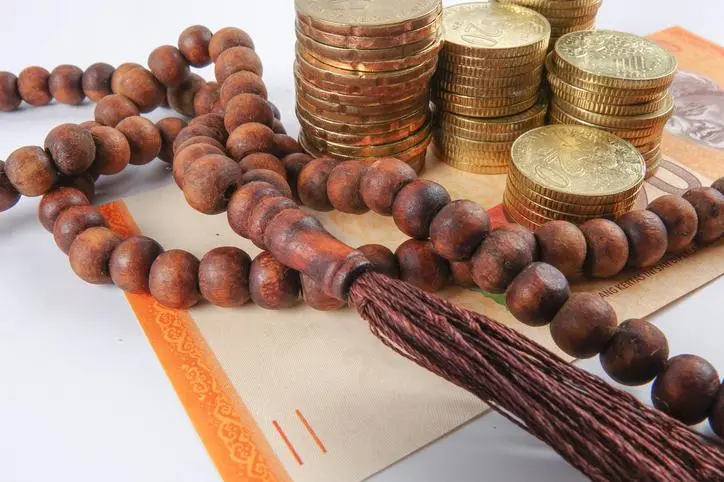PHOTO
The world's first primary sukuk issuance on blockchain was closed last week, highlighting two growing trends within Islamic capital markets: digital innovation and an increasing focus on social impact finance.
The issuer is a community-based microfinance institution in Indonesia known as Baitul Maal wat Tamweel (BMT) that combines commercial Islamic microfinance with social impact projects.
BMT raised 702 million Indonesian Rupiah ($50,000) through a primary sukuk issuance on the blockchain via Blossom Finance’s SmartSukuk platform.
Blossom’s platform allows both retail and institutional impact investing via a browser-based investor dashboard, although more tech-forward investors may also elect to interact directly with their investments via the Ethereum blockchain.
Funds raised in the offering, which uses a mudarabah (profit sharing) structure denominated in IDR and carries a maturity of one year, will be used by the Yogyakarta-based Islamic microfinance cooperative to expand financing for local entrepreneurs.
Blossom Finance in Indonesia, which developed the platform that enabled the sukuk was founded in 2014 aims to increase the availability of Islamic financial services using technology.
The sukuk has also been credited in Islamic capital market as the first “micro sukuk”.
Blossom’s impact investing platform is the first to fund social impact projects through a blockchain-based sukuk. SmartSukuk utilises Ethereum “smart contracts” which is essentially a computer program that runs in the blockchain. All records, assignments, calculations, and payments pertaining to the sukuk are managed via the smart contract, which leaves behind an indelible audit-trail at every step of the way.
According to Blossom CEO Matthew J Martin, “SmartSukuk removes the conventional barriers to social impact investing by making micro investments feasible, transparent, and ultimately tradeable.”
“Containerised freight reduced logistics costs which, in turn, brought global commerce within reach of virtually anyone across the globe. In much the same way, tokenised assets reduce intermediary costs, which makes global finance more accessible regardless of size or borders," he said.
“Through Fintech innovation, the Islamic finance industry finally has the means to fulfil the ethical, social, and environmental promise of the sector,” noted Khalid Howladar, credit and sukuk industry veteran and Chief Strategy & Risk Officer of Blossom.
“Unlike the majority of issuances, this pioneering sukuk offers a genuine profit share for investors – not fixed income – and is closer to the Islamic investment principles that discourage excessive debt and leverage,” he added.
According to the IIFM Sukuk Market Report (8th Edition), the total global sukuk issuances in 2018 topped $123.15 Billion, an increase of +5 percent over 2017. The Muslim-majority countries of Malaysia, Indonesia, UAE, and Saudi Arabia collectively make up the majority of all sukuk issuances.
(Writing by Seban Scaria seban.scaria@refinitiv.com, editing by Anoop Menon)
Our Standards: The Thomson Reuters Trust Principles
Disclaimer: This article is provided for informational purposes only. The content does not provide tax, legal or investment advice or opinion regarding the suitability, value or profitability of any particular security, portfolio or investment strategy. Read our full disclaimer policy here.
© ZAWYA 2019





















